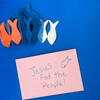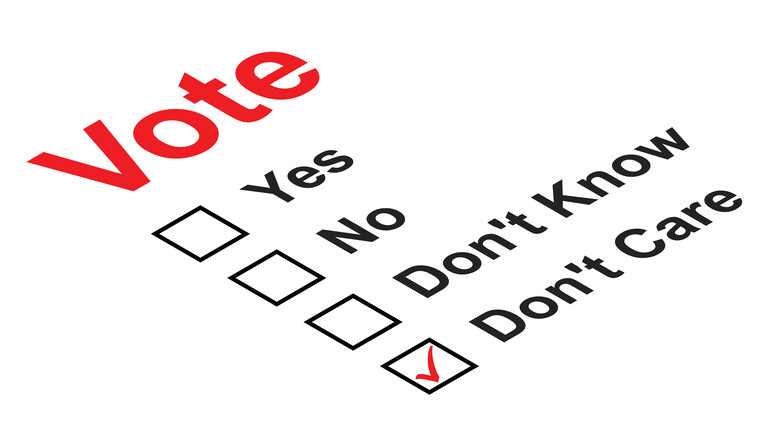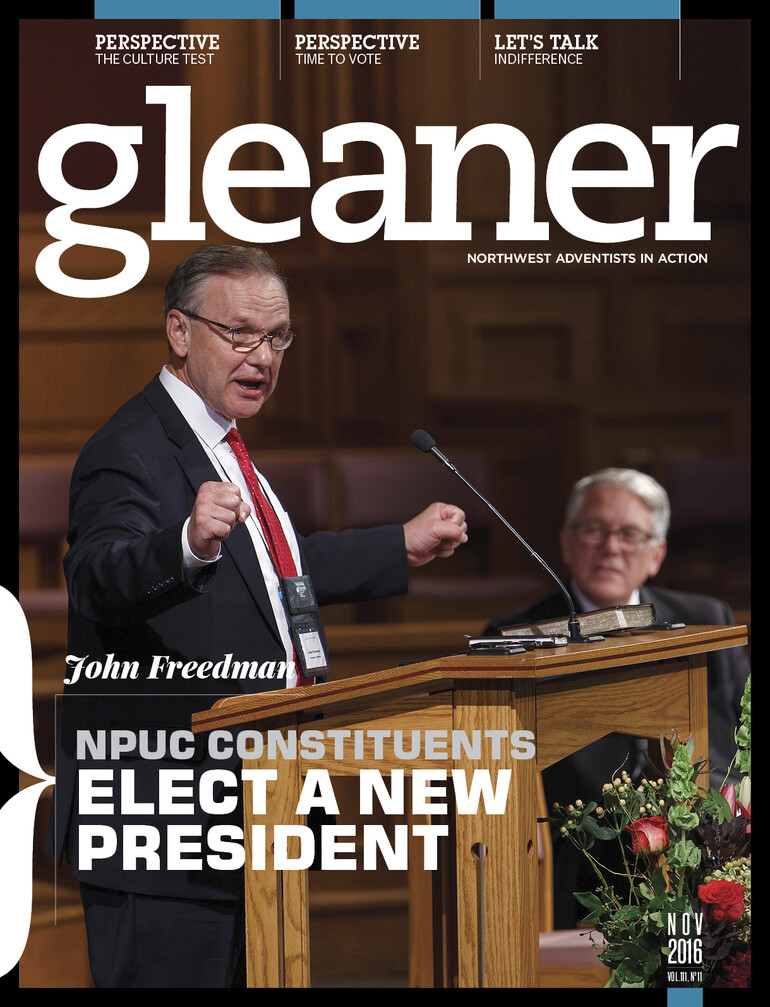I confess to being mired in philosophical muck as I ponder this year’s presidential election. How should I as an Adventist Christian relate to the spectrum of thought — or lack of it — being flung like buckshot? What is Christ’s call upon me as one determined to follow His appeal to be light and salt in this world?
It is tempting to recoil from the vitriol, to retreat from the fray, to resign from accepting any responsibility for the outcome. It is tempting to wish that the strident voices in our country could call a “Jerusalem Council,” determine to work together for the common good and let differences take a back seat. But inaction is itself a vote, allowing the polarization of our land to continue unabated.
How can Christians avoid the polar extremes of hate and indifference in their communities or even within their own ranks?
Eliezer “Elie” Wiesel, Holocaust survivor, had a hundred reasons to hate those responsible for the atrocities he witnessed. But when he died this summer, the legacy he left was stamped with unmistakable messages of peace, atonement and human dignity.
His activist work toward human rights underscored something he once observed. “The opposite of love is not hate, it's indifference,” he noted. “The opposite of art is not ugliness, it's indifference. The opposite of faith is not heresy, it's indifference. And the opposite of life is not death, it's indifference.”
While not exactly Scripture, those thoughts resonate with a divine remonstrance on behalf of Laodecia: “I know your works, that you are neither cold nor hot. I could wish you were cold or hot” (Rev. 3:15, NKJV). But they also run counter to a world that has become hyperfocused on hate.
Eradicating hate is a new obsession. And, who among us can argue with such an apparently righteous cause? Yet zealots in this war against hate are painting slogans with such broad brushstrokes that traditional Christian teachings of sin and salvation are sometimes labeled hate speech. Americans are increasingly giving nondiscrimination the nod over religious liberty.
Certainly some so-called Christians are little more than bullies under the guise of the gospel. But the relentless tide of current thought also tempts Christians of all persuasions, including Adventists, to back off, to blend in, to avoid ruffling feathers, to become irrelevant.
Neutrality in the face of wrong is at odds with the mission and calling of the Savior. From his own faith perspective, Wiesel observed: “We must always take sides. Neutrality helps the oppressor, never the victim. Silence encourages the tormentor, never the tormented.”
Jesus’ reminder — “My kingdom is not of this world” — guides us away from a dependence on political power to effect righteous change. But it is not an excuse to flee the scene of action. Instead, His example moves us from indifference toward positive engagement with our communities — the way He ministered throughout Galilea.
What are the needs of your local Galilea today? Perhaps it is your calling to find out and respond. In doing so, your attitudes and actions will demonstrate that neither hate or indifference have a place within our Adventist mission.











